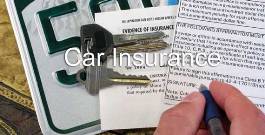 Florida Statues may allow PIP carriers to conduct medical examinations and perform paper reviews, but no authority, including the statute itself, grants PIP carriers license to reference those procedures as an “IME,” “Independent Medical Examination,” or a “Peer Review.” In short, PIP carriers have created the terms out of whole cloth to mislead juries.
Florida Statues may allow PIP carriers to conduct medical examinations and perform paper reviews, but no authority, including the statute itself, grants PIP carriers license to reference those procedures as an “IME,” “Independent Medical Examination,” or a “Peer Review.” In short, PIP carriers have created the terms out of whole cloth to mislead juries.
The doctors are not independent or conducting peer reviews. (Merriam-Webster Dictionary’s only definition of “peer review” is: a process by which something proposed (as for research or publication) is evaluated by a group of experts in the appropriate field.) They are hired by the defense and paid by the defense. If the jury hears that doctors are “independent” or a “Peer Review,” the jury may be confused into believing or thinking the doctors were appointed by the court, a governing body, or with the approval of the Plaintiff or the Plaintiff’s attorney.
When preparing for trial, the Plaintiff’s attorney should consider moving the court for an In Limine order preventing the insurance company from perpetuating the falsehood.
Continue reading
 Florida Injury Attorney Blawg
Florida Injury Attorney Blawg


